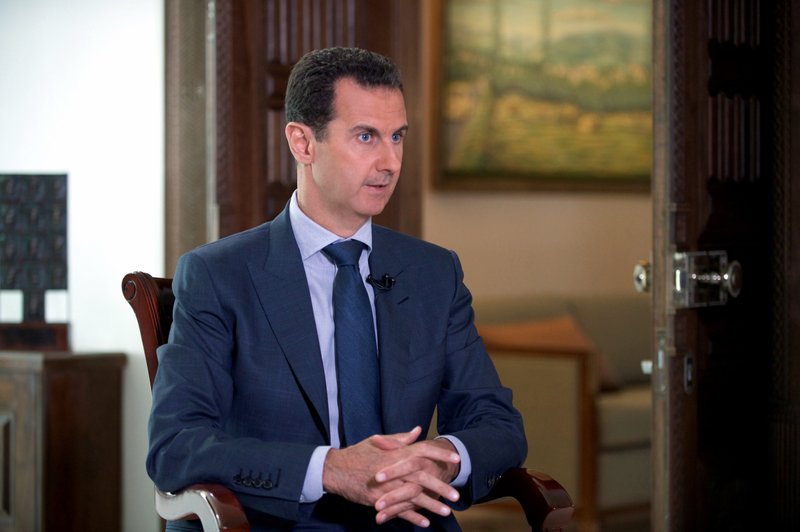DAMASCUS, Syria — President Bashar Assad rejected U.S. accusations that Syrian or Russian planes struck an aid convoy in Aleppo or that his troops were preventing food from entering the city's rebel-held eastern neighborhoods, blaming the U.S. for the collapse of a cease-fire many had hoped would bring relief to the war-ravaged country.
In an interview with The Associated Press in Damascus, Assad also said deadly airstrikes by the U.S.-led coalition on Syrian troops last week were intentional, dismissing American officials' statements that they were an accident. Assad said the U.S. lacked "the will" to join forces with Russia in fighting extremists.
Assad, who inherited power from his father and is now in his 16th year in office, cut a confident figure during the interview — a sign of how his rule, which once seemed threatened by the rebellion, has been solidified by his forces' military advances and by the air campaign of his ally Russia, which turned the tables on the battlefield last year.
He said his enemies alone were to blame for nearly six years of devastation across Syria, and while acknowledging some mistakes, he repeatedly denied any excesses by his troops. He said the war was only likely to "drag on" because of continued external support for his opponents
"When you have many external factors that you don't control, it's going to drag on and no one in this world can tell you when" the war will end, he said, insisting Syrians who fled the country could return within a few months if the U.S., Saudi Arabia, Turkey and Qatar stopped backing insurgents.
He spoke Wednesday in Damascus' Muhajireen palace, a white-stone building where he often receives guests, nestled among trees on the foothills of Qasioun Mountain. The Syrian capital, seat of Assad's power, has stayed relatively untouched throughout the conflict, spared the devastation inflicted on other, opposition-held areas of the country. In recent months, Assad's forces have taken rebel strongholds in suburbs of the capital, bolstering security and reducing the threat of mortar shells.
Read Friday's Arkansas Democrat-Gazette for full details.
